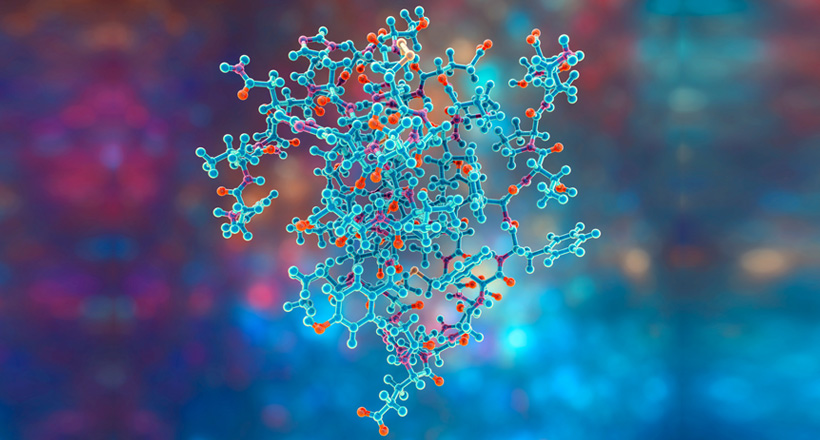Therapeutic Peptides are a unique class of pharmaceutical drugs positioned in-between classical small-molecule drugs and large-molecule drugs. The peptide drug market is growing faster because of several inherent advantages concerning specificity, efficacy, safety, and the possibility of synthesizing by chemical and or biological methods. It is essential to study the impurity profile of a therapeutic peptide as impurities arise during any stage of peptide synthesis, either from the starting materials, manufacturing process, or during storage.
This blog is the first in its series and takes you through the importance of impurity profiling during the chemical synthesis of peptides.
Peptide Synthesis
Peptides consist of 2-50 amino acids linked by amide groups. Chemical synthesis allows the preparation of peptides outside a living cell. Synthetic peptide drug examples include hormones such as Oxytocin, Calcitonin, Liraglutide, Octreotide, etc.
Chemical peptide synthesis is by two methods
- Solid-Phase Peptide Synthesis
- Liquid-Phase Peptide Synthesis
Solid-Phase Peptide Synthesis
It is the most frequently used, efficient, and quick method of synthesis of peptides. Solid phase peptide synthesis (SPPS) involves a coupling reaction of amino acids consisting of protected side chain amino acid residues attached to insoluble polymeric support (resin).
The C-terminal of the initial amino acid is linked covalently to an insoluble polymeric support. After removal of the N(α)-protecting group of the last amino acid residue, N(α)-amino protected amino acids are introduced to the anchored amino acid. Subsequently, it involves a process of purification to remove the soluble by-products. The groups used for N(α)-amino acid protection are 9-fluorenylmethoxycarbonyl (Fmoc) or tert-butoxy carbonyl (boc). Repeating the deprotection and coupling cycle gives the desired peptide. The anchored product is cleaved from the polymer support, and the peptide releases into the solution.
SPPS prepares most peptides of 50 amino acid chains. Fully automated machines can prepare small quantities of peptides quickly. Further, microwave-assisted SPPS offers high-quality peptides.
Liquid-Phase Peptide Synthesis
Peptide synthesis occurring in solution is liquid-phase peptide synthesis. It usually utilizes Boc or Z-amino protecting groups. The final purification step in liquid-phase peptide synthesis is simpler than SPPS. Large-scale synthesis of peptides for shorter chains gives good yield by this method.
Impurities Formed During Peptide Synthesis
The possible impurities during the synthetic process of a therapeutic peptide include
- Truncated amino acid sequences
- Deletion sequences
- Incomplete deprotection sequences
- Modified sequence due to peptide cleavage
- Amino-acid racemization
Impurities like peptide counter ions and trifluoroacetate arise from purification methods or SPPS. The side chain reactions of amino acids from Deamidation, oxidation, and hydrolysis reactions result in the formation of impurities. Further, peptide impurities can result in storage due to degradation mechanisms such as β-elimination and succinimide formation. Drug substance-excipient interactions also generate peptide-related impurities.
Purification of Peptides
Synthetic peptide purification is critical as impurities can affect a drug’s therapeutic efficacy. The purification of synthetic peptides by Reversed-phase HPLC (RP-HPLC) and ion-exchange chromatography are common methodologies. Also, Gel permeation chromatography (GPC) and Supercritical fluid chromatography (SFC) are used as complementary techniques.
Control of Peptide Impurities
There are many techniques involved in the control of peptide impurities. High-Performance Liquid Chromatography (HPLC) separates and quantifies impurities. Liquid chromatography high-resolution mass spectroscopy (LC-HRMS) helps identify and elucidate structurally related peptide impurities. Regulatory agencies recommend an orthogonal approach using sensitive analytical techniques such as UHPLC-HRMS with the standard HPLC / UHPLC methods to establish the impurity profile of a peptide drug. Peptide-related impurities are critical, not only for active pharmaceutical ingredients (APIs) but also for finished drug products. According to the US-FDA guidelines, during ANDA submission for proposed generic synthetic peptides, the level of a peptide-related impurity in generic synthetic peptides should not be greater than the level found in RLD (Reference listed drug). The control of peptide impurities is vital to establish the safety and efficacy of a synthetic peptide drug.
Daicel offers various kinds of high-quality impurity standards of synthetic peptides and partners with peptide drug manufacturers across the globe. Our custom peptide synthesis team provides reliable solutions to complex peptide impurities and stable isotope-labeled peptides.
Daicel uses state-of-the-art automated SPPS, advanced purification, and analytical techniques during peptide synthesis, followed by the generation of a certificate of analysis from a cGMP-compliant quality control facility.
In addition, Daicel offers physicochemical characterization, cell-based bioassay development, process development, and tech transfer of therapeutic peptides.
Conclusion
Contamination of peptide drugs with impurities will impact the quality and efficacy of peptides and hence impurity profile studies are very important. Peptide impurities can introduce immunogenic epitopes within an amino acid sequence of a peptide and may result in undesired immune responses against the peptide drug. Hence, well-characterized impurity standards are necessary to judge the quality of peptide drugs. Daicel provides reliable custom peptide synthesis services to therapeutic peptide drug developers and manufacturers.
Please read our other blogs in the Peptide Synthesis series to learn more about peptide impurities.
If you are looking for peptide synthesis services, reach out to Daicel specialists today! Just drop in your contact details and we will get back to you.



Worth reading!